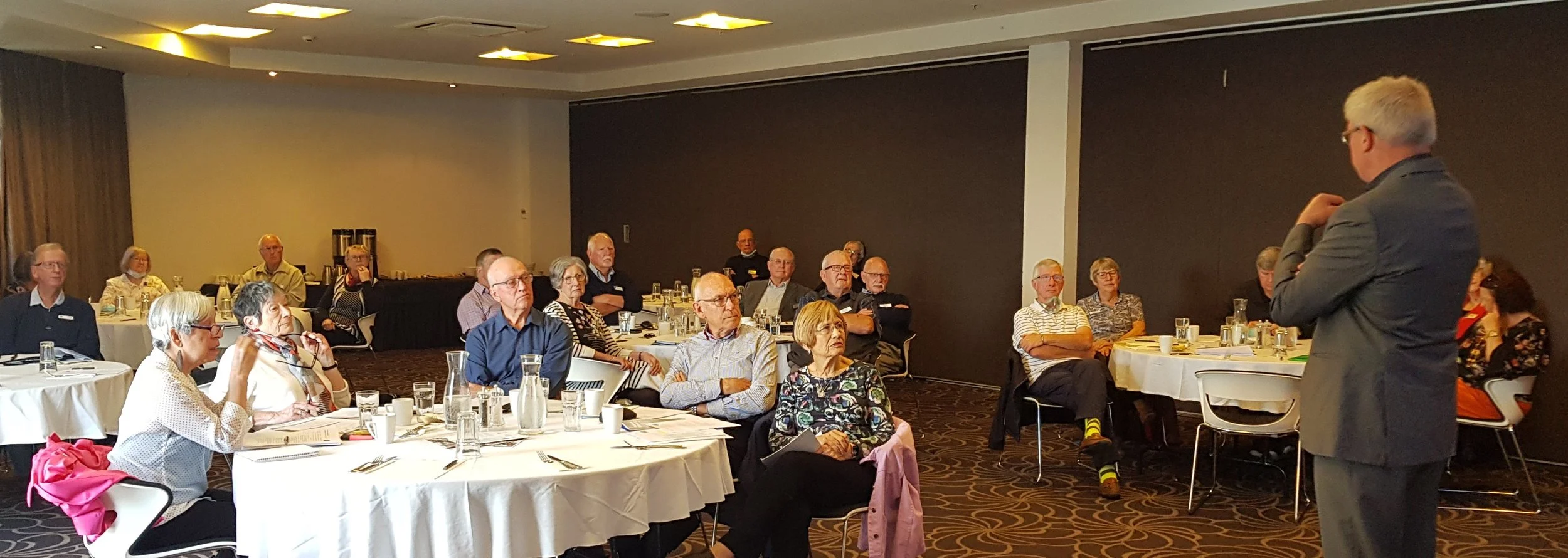The growing popularity of retirement villages
Written By Hon. Tracey Martin - former Seniors Minister
More than 47,000 New Zealanders now live in retirement villages and 100 people are moving in every week. Many of us have family members and friends in retirement villages.
Given the growing popularity of retirement villages in this country, it has been no surprise there has been more scrutiny on the sector in recent years. I saw that first-hand in my time as Seniors Minister in the Labour-New Zealand First Government.
Hon. Tracey Martin
Last year, I agreed to become the Independent Member of the Retirement Villages Association’s (RVA) Executive Committee in order to represent the residents’ point of view. Following on from my Ministerial portfolio, this was an opportunity to get the view from ‘the ground.’
In taking on the role, I anticipated there would be some challenges.
The Retirement Commissioner had released a White Paper that advocated a review of the retirement village legislative framework. Meanwhile, the RVA, which represents village operators both large and small, launched its own Blueprint for Change.
One of the key aspects of the blueprint is strengthening the voice of residents and ensuring they are heard at RVA’s governance level. It also addresses other issues of concern to residents, such as weekly fees (fixed or a predicable increase, ceasing when a unit is vacated), commits to making sure operators re-license vacant units as quickly as possible and ensuring the terms around transfers to care are transparent.
And the blueprint includes a pledge to address anyd perceived or real “unfair” clauses in Occupation Right Agreements (ORAs).
I was of course expecting there would be times when I would have to stand up to the RVA’s Executive Committee to say, “people over profit” – but I never once had to.
I was expecting to meet a good number of residents with significant concerns – but, while many of the residents I met agreed some things needed to be fixed, most were very happy with their village life.
There are without doubt some issues that need to be resolved – but encouragingly I found the willingness is there to address them. The sector recognises that if people are not happy, they will not come to live in the villages. But the industry also accepts the need to improve and evolve its offering.
The sector clearly has a vast offering. There are opportunities for people to buy into different models, such as fixed fees or not fixed, or with capital gains or without. The sector is genuinely trying to deliver on a variety of options. In fact, I would also like to see the state starting a conversation with the sector about the potential for it to answer the housing needs for an even wider range of seniors.
I was also surprised at the many myths around the retirement village sector held by those not living in villages. Some think that they are only for those requiring significant care and support; that they are isolated ‘gated communities’; that they have hidden fees and costs; that they are only for the wealthy; that the purchase of ORAs is highly complicated; that they make exorbitant profits, and that there are no legal protections for residents.
Throughout the meetings and spending time with residents after them, it was reassuring to find most people did not hold these views.
I had expected the concept of capital gains to be a burning issue. But, again, while it was recognised some issues needed to be sorted, such as repairs to chattels, it was not seen as a significant problem.
It was important to people to leave something for their families, but how they lived their lives in their villages was most important to them. They appreciated the worry-free lifestyle, the community, the facilities and simply having weekly fees – in many cases, fixed for life - rather than having to worry about the upkeep of their homes and things like rates, insurance and water levies.
For many, moving into a retirement village had freed up capital to enjoy. These things, together with living in safe, vibrant communities was more important to them than having capital gains on the other side. Many people know seniors living in retirement villages and I’m sure that knowing their friends or loved ones are in such an environment provides much peace of mind.
The sector is one of the country’s largest developers of new homes. With our rapidly aging population, we cannot underestimate the importance of that – not only of the accommodation but of villages’ roles in addressing loneliness and isolation, safety and security, keeping people active and interacting and providing continuation of care where needed.
Due to other commitments, Ms Martin is stepping down from her RVA role, with Hon. Jo Goodhew, former MP and former Minister for the Community and Voluntary Sector taking on the position

